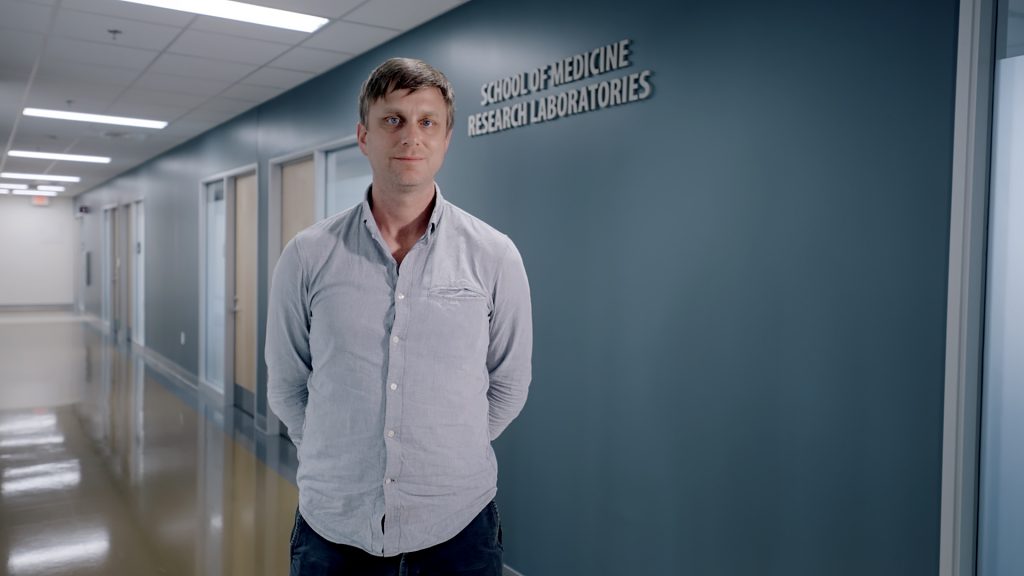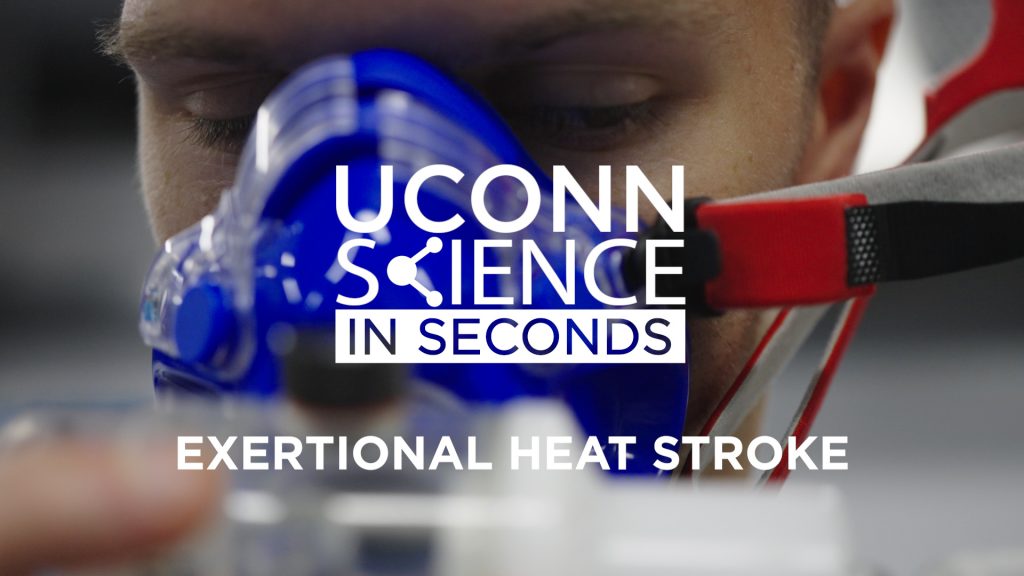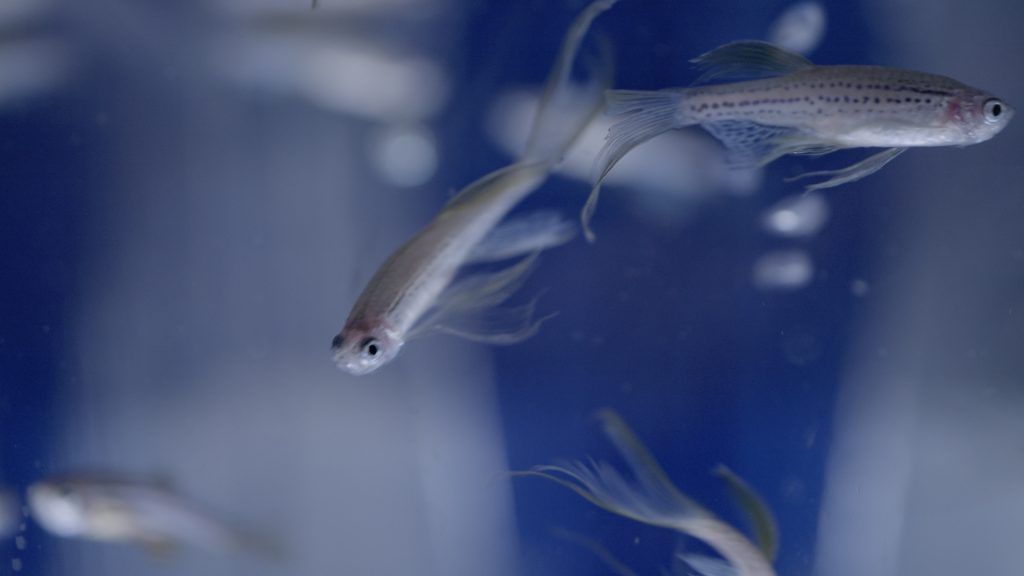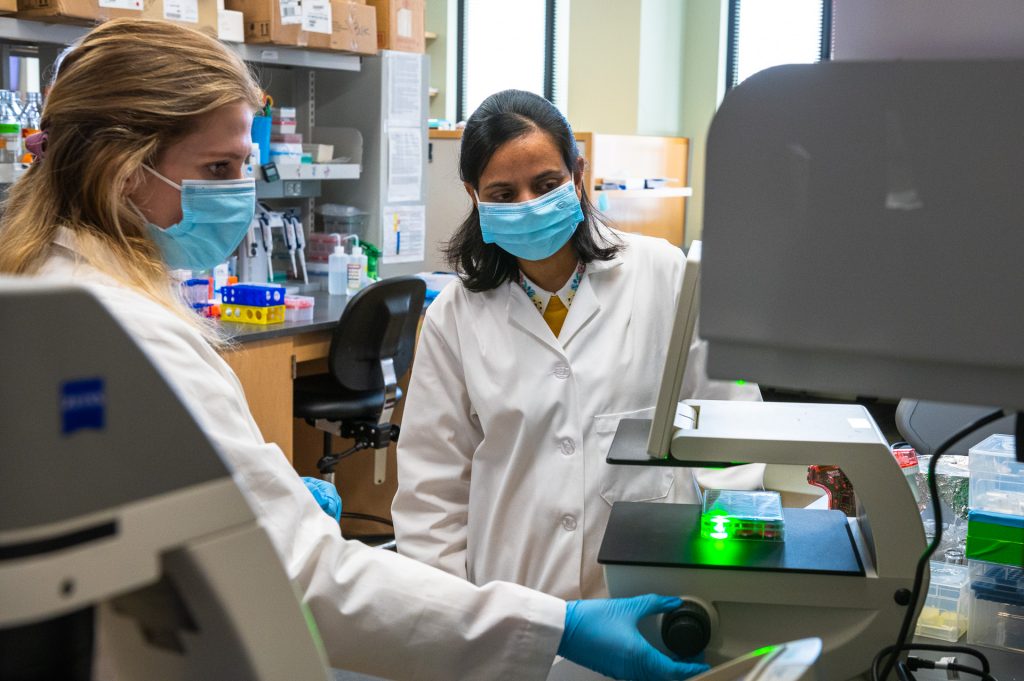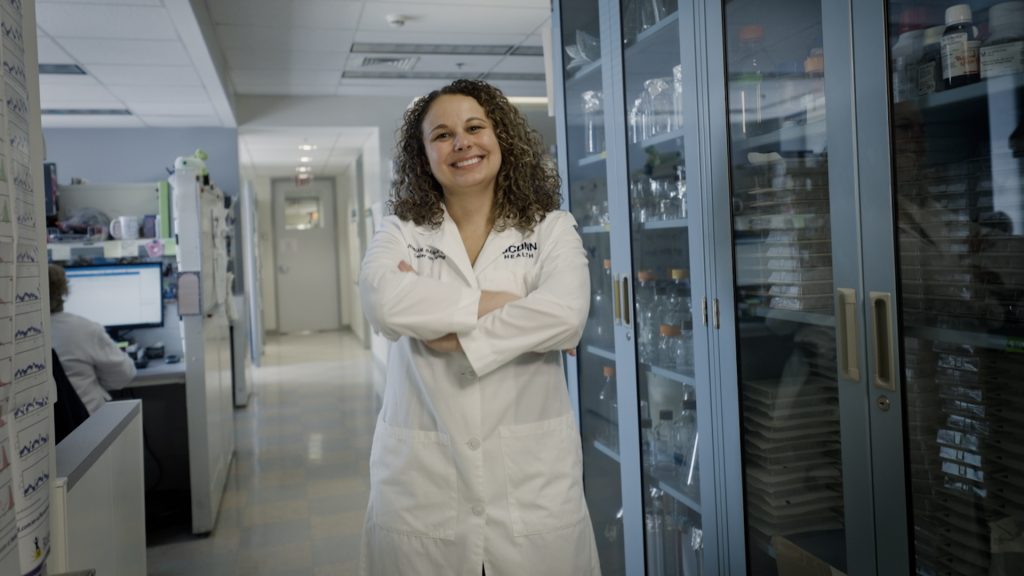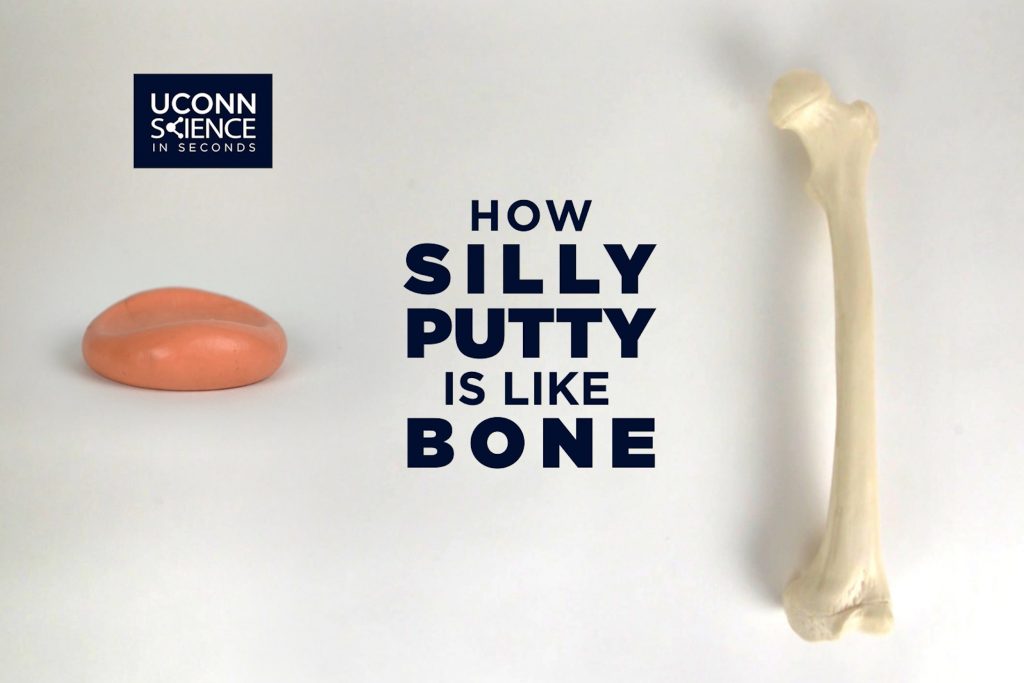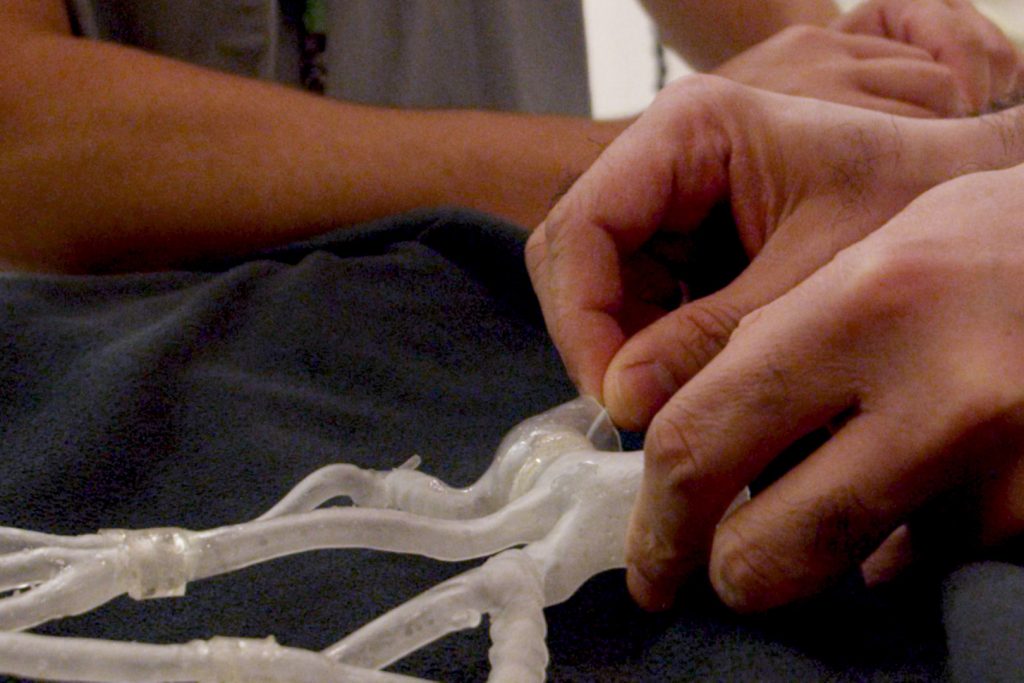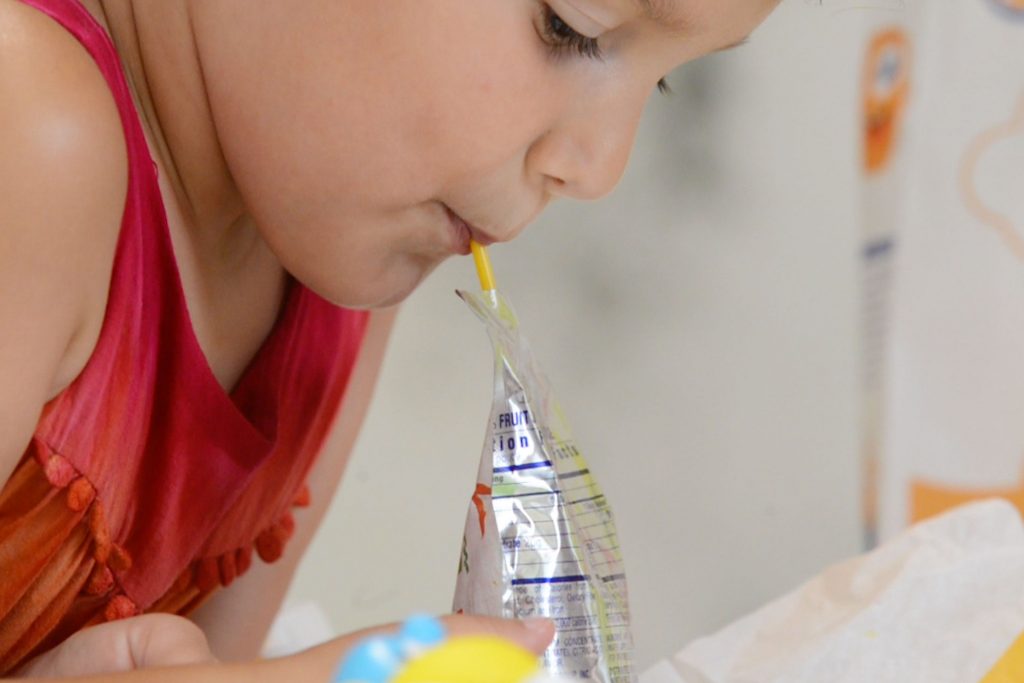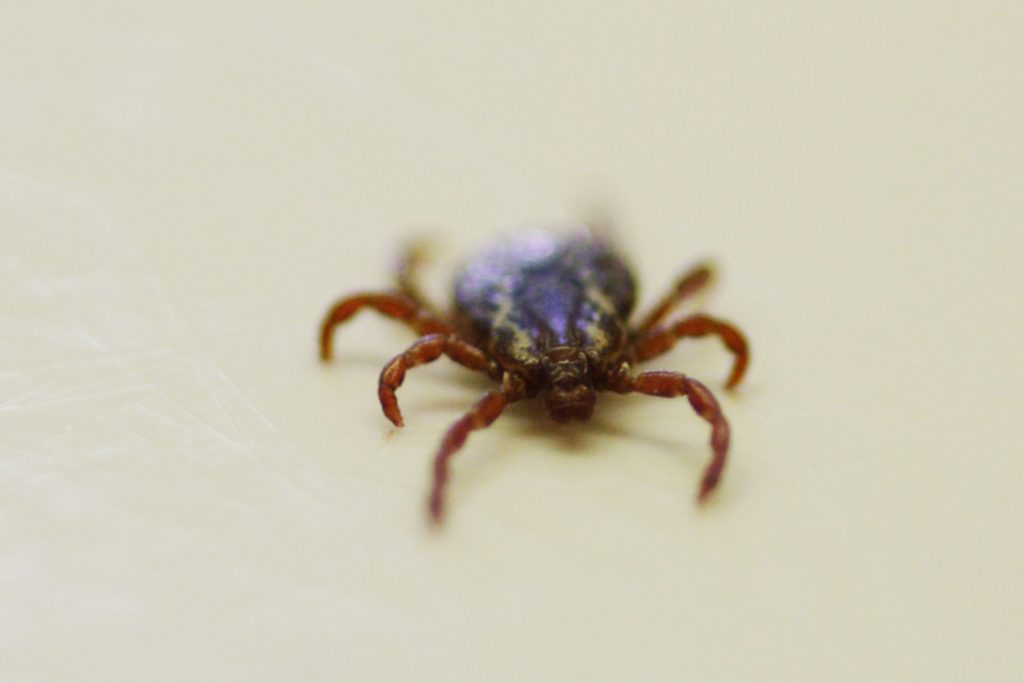
Series
Science in Seconds
Got a minute? Catch up on the latest research happening at UConn. In laboratories, in hospital rooms, and in the field, researchers are gathering data to answer critical questions facing our global community.
Science in Seconds: Attention-Grabbing Brain Research
UConn Health neuroscientist Timothy Spellman is focusing his attention on “attention”
October 24, 2022 | Carolyn Pennington - Schools of Medicine and Dental Medicine
Science in Seconds: Exertional Heat Stroke
What happens when the human body gets too hot? And what can you do if someone gets too hot? Douglas Casa, professor of kinesiology and chief executive officer of UConn’s Korey Stringer Institute explains.
July 25, 2022 | Angelina Reyes - UConn Communications
Science In Seconds: What We Can Learn from Zebrafish
UConn Health's Jean-Denis Beaudoin is studying the earliest stages of zebrafish development to better understand how defects and diseases develop in humans
July 21, 2022 | Carolyn Pennington - Schools of Medicine and Dental Medicine
Science in Seconds: Cryptocurrency
The existence of cryptocurrency may date to 2008, but many people still struggle to understand how it gets its value, why they should pay attention, and how to define it for the layman.
June 29, 2022 | Thomas Rettig
Science in Seconds: Our Immunity vs E. coli
A UConn Health immunology researcher is focusing on the interaction between our immune system and E. coli to better understand it and develop new treatments against this potentially deadly disease.
June 14, 2022 | Carolyn Pennington - Schools of Medicine and Dental Medicine
Science in Seconds: Healthy Aging
Getting a broad picture of how aging affects the whole body, and how older adults can be healthier for longer
May 12, 2022 | Carolyn Pennington - Schools of Medicine and Dental Medicine
How Silly Putty is Like Bone
A physiology and neurobiology professor explains that the physical characteristics of both substances vary, based on how fast a force is applied on them.
October 30, 2017 | Bret Eckhardt - UConn Communications
Science in Seconds: UConn Health’s 3-D Print-out of Brain
Using brain scans and a 3-D printer, a UConn team made a life-size model of the arteries surgeons must navigate to pull blood clots from stroke victims.
September 20, 2017 | Elizabeth Caron - UConn Communications
Fast-Food Restaurants Not Promoting Healthy Kids’ Meal Options
Breaking News: Yesterday, McDonald's announced it is making Happy Meals healthier, a move advocated by UConn's Rudd Center.
August 10, 2017 | Daniel P. Jones, UConn Rudd Center, and Bret Eckhardt & Elizabeth Caron, University Communications
Fighting Tick-Borne Diseases on Multiple Fronts
UConn is on the front line in the fight to control the spread of tick-borne diseases. At the state testing lab on campus, UConn scientists are tracking established and emerging diseases carried by ticks from around the country.
July 25, 2017 | Elizabeth Caron - UConn Communications
